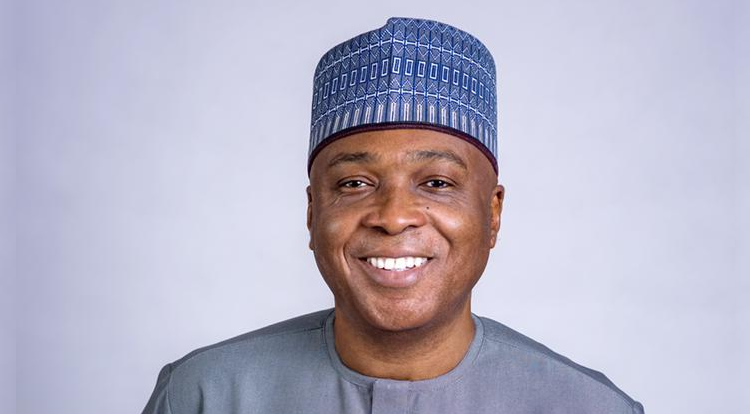President Bola Tinubu’s Democracy Day address ignited a flurry of reactions, particularly his pointed remarks about the disarray within Nigeria’s opposition parties. His comments, delivered with a touch of irony, highlighted the internal struggles plaguing these parties, especially the Peoples Democratic Party (PDP), and served as a clear message that his administration would not intervene in their attempts to reorganize. Former Senate President, Bukola Saraki, a prominent figure within the PDP, responded directly to Tinubu’s pronouncements, acknowledging the validity of the President’s observations about the party’s internal challenges while simultaneously affirming the PDP’s resolve to address these issues independently. Saraki’s response underscored a critical dynamic in Nigeria’s political landscape – the ongoing struggle for power and stability within the opposition ranks, a struggle further complicated by the ruling party’s apparent strategy of attracting defections.
Tinubu’s address was notable not only for its candid assessment of the opposition’s internal woes, but also for its dismissive tone regarding any assistance from the ruling All Progressives Congress (APC). His assertion, “I will not help you to do so, either,” was a clear signal that the APC would not be extending a helping hand to its rivals, even as it actively sought to expand its own ranks through defections. This stance further emphasizes the competitive nature of Nigerian politics and suggests a calculated move by the ruling party to capitalize on the opposition’s vulnerabilities. Tinubu’s comments also served to address rumors of a deliberate attempt to create a one-party system, a notion he explicitly rejected while simultaneously highlighting the opposition’s internal struggles. This creates a complex narrative where the ruling party denies any intention of monopolizing power while simultaneously benefiting from the opposition’s disarray.
Saraki’s response to Tinubu’s address was carefully crafted, balancing an acknowledgment of the PDP’s internal challenges with a clear message of resilience and self-reliance. He conceded that the party indeed needed to “get its house in order,” echoing Tinubu’s own words. However, he emphasized the PDP’s commitment to a multi-party system and its determination to resolve its issues without external intervention. This response reflects a delicate balancing act – admitting vulnerability while projecting an image of strength and resolve. It also implicitly acknowledges the pressure the PDP faces from the ruling party’s overtures to its members while simultaneously dismissing the notion that these overtures are forcing defections. Saraki’s words were a clear message to both the APC and the Nigerian public that the PDP, despite its challenges, intends to remain a viable force in the political landscape.
The exchange between Tinubu and Saraki highlights the broader challenges facing Nigerian democracy. The opposition’s internal divisions create an uneven playing field, potentially undermining the healthy competition that is essential for a thriving democracy. The PDP’s internal struggles are not merely internal party matters; they represent a wider challenge to the robustness of Nigeria’s democratic institutions. A strong and unified opposition is crucial for holding the government accountable and ensuring a balanced representation of diverse political perspectives. The PDP’s ability to reorganize and present a united front will be critical for the future of Nigeria’s multi-party system.
Furthermore, the ongoing political maneuvering, including defections and accusations of pressure tactics, raises concerns about the integrity of the electoral process and the potential for undue influence. The fluidity of party affiliations and the apparent ease with which politicians switch sides raise questions about the depth of ideological commitment and the potential for political opportunism. These dynamics can erode public trust in political institutions and create a climate of uncertainty and instability. While Tinubu denies any intent to establish a one-party system, the opposition’s disarray and the ongoing defections to the ruling party create a perception of a power imbalance. This perception, regardless of its basis in reality, can undermine the confidence in the fairness and competitiveness of the political process.
Ultimately, the future of Nigeria’s democracy hinges on the ability of all political parties, both ruling and opposition, to engage in constructive dialogue and competition. The PDP’s internal reorganization is not just a matter of party politics; it is a critical step towards strengthening Nigeria’s democratic institutions and ensuring a vibrant and competitive political landscape. The challenges facing the PDP, and the opposition in general, represent an opportunity for renewal and reform. The party’s response to these challenges will be crucial in determining not only its own future but also the future of democratic discourse in Nigeria. A strong and effective opposition is essential for holding the government accountable and ensuring that the voices of all Nigerians are represented in the political process.


